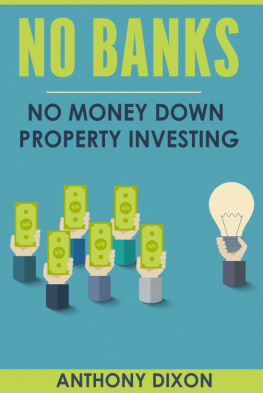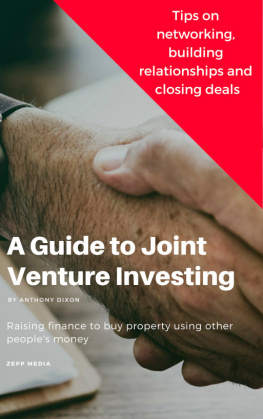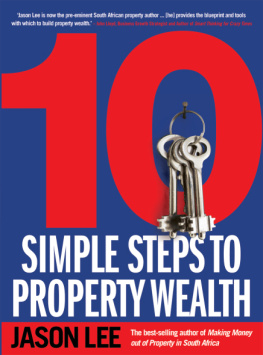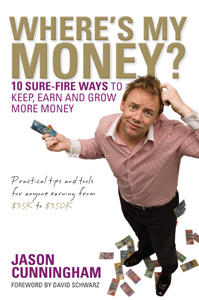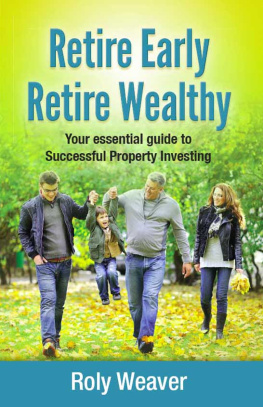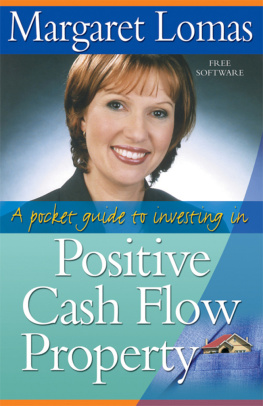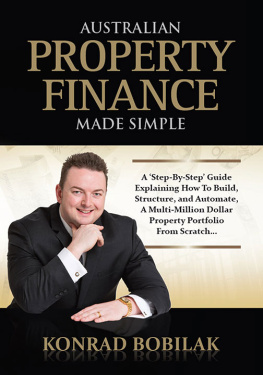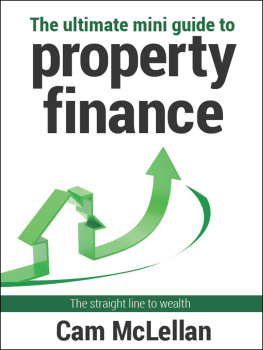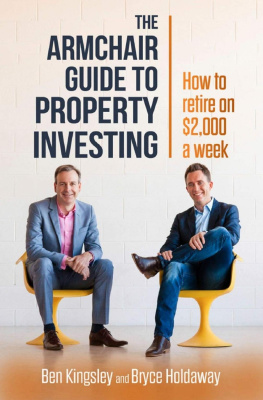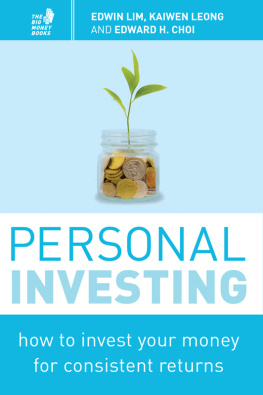NoBanks
NoMoney Down Property Investing
By Anthony Dixon
All Rights Reserved 2019 Zepp Media
Table ofContents
Introduction
I have been interested in residential propertyinvestment since owning my first property back in 2006. Since thenI have read and adopted many techniques to source property aroundmy local region of Derbyshire. I didnt make much money fromproperty in the early days as I did not learn the strategies usedby traders and developers to find good deals and be able to secureproperty quickly. I didnt have the expertise and I didnt haveaccess to large sums of money or mortgages. What I have learnt frommy experience sourcing property for investment is that it is noteasy. What I have put together in this guide is no get rich quickidea. Trying to build a portfolio on your own is very difficultwhen you are starting out. You face barriers to entry includinglack of finance, lack of money, lack of expertise and a lack ofknowledge of your local property market. This book has been writtento give you effective ideas of how to build your portfolio quickly,using no money down techniques and no requirements from banks andmortgage lenders. I have always wanted to avoid banks and lendinginstitutes ever since I saw what happened to a family member whogot into financial difficulty. I feel banks can act like vultureslooking at your assets if you cant pay back the loan. So eversince, my investment approach has always been to avoid thetraditional route of funding. I am not saying you should avoidmortgages and banks forever but it might be worthwhile to considerother avenues when starting out. I hope my experience and theexperience of property traders and investors that I know and talkedto will help you in your career as a property dealer or investor.At the time of writing this book, I have been waiting to see theoutcome of Brexit before considering sourcing other property forinvestment. This has given me the time to put together theinformation on how to use no money down as a property investmentstrategy.
Part One
Find your perfectpartner
Introducing jointventure (JV) investing
We will begin this guide with jointventure, or JV, investing as I believe this is the most effectiveno money down strategy to property investment. Many new investorsconcentrate on how to secure a good deal on a property withoutreally knowing how to find funding other than relying on banks.This is where many investors can go wrong and potential deals fallthrough. Now more than ever is a difficult time to secure loans andmortgages from banking institutions. You are expected to jumpthrough hoops before an offer is made with strict lending criteriaand checking through your credit history with a fine toothcomb.
Investorsunderestimate the importance of securing capital from private moneylenders. As an investor, securing this kind of finance can save youa lot of time and heartache. You can bypass the banks and tap intothe wealth of a sophisticated private lender. Even better, you canfind the kind of lender who already has the knowledge andexperience of investing in property.
When we aretalking about using a private money lender we mean forming a jointventure (JV). A JV can be an excellent way to build your portfolioquickly while other small investors are scratching their headswondering why no lending institution will provide them with amortgage. A JV can give you a firm footing in the propertyinvestment industry and reduce the risk of first timeinvestment.
Why would aprivate investor want to invest with you? Well, many privateinvestors are struggling to make good returns on their cash left inthe bank and they find it difficult to increase profits from theirown businesses. Other investments such as the stock market may bein periods of volatility, so investors are looking at property asan alternative. A professional investor is always on the lookoutfor better returns compared to what they are already achieving.
When you haveread the whole of this guide you will know how to find jointventure partners and put in place an investment team. This team canhelp you build your portfolio and wealth way beyond what you wouldbe capable of on your own. You will be confident in how to talk toother investors, how to present a deal, how to structure a deal,how to sell the idea to them and how plan exit strategies so thatall parties win.
Do not wasteany more time and start your journey into investing, buying,borrowing and partnering. In a few years time you will be able tolook at this period as the time you built your empire and became aprofessional property investor.
The definition ofa joint venture
So we have identified that a jointventure is what you will be forming to invest with a privateinvestor. But what is a joint venture? Wikipedia provides a gooddefinition of what a joint venture is:
A jointventure ( JV ) is a business entity createdby two or more parties, generally characterizedby shared ownership , shared returnsand risks , and shared governance.Companies typically pursue joint ventures for one of four reasons:to access a new market, particularly emergingmarkets ; to gain scale efficiencies by combiningassets and operations; to share risk for major investments orprojects; or to access skills and capabilities.
A joint ventureis all about what each party can bring to the investment. The bestjoint ventures are the ones where investors have skills andexperience that complement each other, or opposing skills. You mayhave one investor who has skill and experience in carrying outproperty refurbishments, whereas the other investor has access togood mortgages.
Of course, youwill be looking for an investor who has the cash and access tofinance. So what can you offer in return? Well, you can offer yourtime that a private investor may not have. There will be manywealthy investors who have other business commitments and dontwant to get their hands dirty. You can offer your time to put inthe blood, sweat and tears of searching for properties and dealsfor an investment. The private investor may also have theexperience but not the time, you have the time and can listen totheir advice as you search for suitable property.
Is it worth usinga JV partner?
As a smallinvestor, joint venture investing presents the most efficient wayof building a portfolio of property. You can build a portfolio in ashort space of time with less risk and lower capitalrequirement.
You will havemultiplied your buying power drastically and accelerated the timeit takes to build a sizeable portfolio. You will tap into knowledgethat you may never have got investing on your own and you may saveyourself on some costly mistakes in the process.
The power of aninvestment relationship
We have just mentioned that private investors willhave experience that they can bring to the venture. This is truewith many investors with experience in business that includesnegotiating deals, contracts, project management, budget control,business law and all round business acumen. Having a partnerinvolved with this kind of experience can seriously increase yourconfidence!
Therelationship that you will build with your investment partners andthe experience that you can tap into may be more valuable thangetting the funds. An experienced investor will have the contactswith useful people that can make the investment a success. This mayhave taken years to build a similar network of qualified people ifyou invested on your own. A business partner might be thedifference between a profit and negotiating a bad deal. Althoughyou will be giving up a percentage of the profit it is better thanmaking no money at all or even a loss.
Joint venturepartners will enable you to keep building your portfolio even whenthere are tough economic times. No longer are you relying on thefinancial institutions that may block your application for finance.There may be more flexibility in any interest and repayments toanother investor in a joint venture agreement, something you wontget from a bank.
Next page
